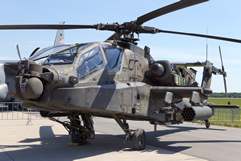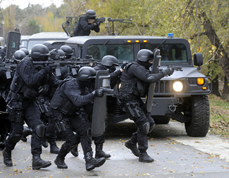
Military Special Forces is a career requiring an acute awareness and at times, perhaps unexpectedly, intense concentration. Any lack of, or deficiency in awareness, or a lapse in concentration could have grave implications as a result of an ill-timed or inappropriate response.
The following is a comprehensive breakdown of the dynamic visual skills and how they more specifically relate to the functions performed by Military Special Forces.

How stress affects your ability to function. It really doesn’t matter much how fast and accurate, or appropriate your responses are when stress isn’t a factor. The key in this job is what happens to all that when stress is a factor.
Individuals are affected in different ways and to varying degrees. It can cause us to miss the ‘big picture’ (causing us to lose situational awareness); it can cause tunnel vision or target fixation (making us less aware of both peripheral action and verbal cues); it can create mental tunneling (making it harder for us to think outside the box and see the more obscure links); it can slow down the thought process and therefore the initiation of our responses (making it harder to ‘think on the fly’ and be consistently effective); it can cause us to over-anticipate and react too soon (making ill-timed or simply inappropriate responses).
Making sure you don’t over-anticipate, committing yourself too soon. The guy who initiates a movement (especially out of panic) before he has been able to sort out the visual clues and consciously make a decision, is the one we can vote ‘most likely to shoot the hostage’.
This is a measure of their ability to see and attend to a wide variety of external cues as well as their ability to accurately recall detail from short-term memory.
Not being aware of the entire picture causes a lack of situational awareness and may cause the operator to make reaction decisions based on pieces of the action. For example: His first point of focus may not be the primary threat and if he becomes fixated with that secondary one or even irrelevant action, he will not be effective.
The ability to accurately recall detail from short-term memory can be a crucial part of the after-action report on a mission. For example: Assaulters, making a deliberate entry, are at phase line green. Someone on the team hears or sees something that leads you to believe you have been compromised. You call an “I.A.”. As a result of that decision, the entire plan has changed…and hostages are killed. You need to justify that decision, which ultimately cancelled the plan that was originally made to get everyone out alive. Sequence is crucial…hence, the quality and the quantity of your short-term memory recall. Another example: A sniper must be able to remember details of how it was, so subtle changes are noticed. For instance, if a perp appears in a different window, it indicates that he has control over more than one floor. Or an open door, previously closed, lets you know there is a guaranteed entry point (in other words, it’s not barricaded).
The ability to maintain a high level of focus on a key target or objective in high stress situations. It’s important to attend to a wide range of external cues; it’s also important to organize and integrate a wide range of internal thoughts and ideas, but it’s crucial that you are not distracted by getting ‘caught up in your head’ when external vigilance is important.
How long it takes you to process what you see, make a decision and get started. For example: an assaulter, making a room entry, has only a fraction of a second to assess the situation, make a decision and initiate a response. Keep in mind, the perp doesn’t have a decision to make. Everything coming into his playground dies. You’re the only one that has to be discriminating.
The quantity and the quality of the information that is absorbed away from your central field of view and the speed of your response to that stimulus. For example: ‘Tunnel vision’ is a very common stress effect. When making a room entry, your first point of focus may not be the primary threat. Therefore, you need to be aware of the entire picture so that you can react instantly to a threat that is initiated away from the central field of view.
This is the speed, the accuracy and the quality of the gross physical movement or response. Let’s face it....it doesn’t matter how fast the movement is, if you miss your target, you lose!